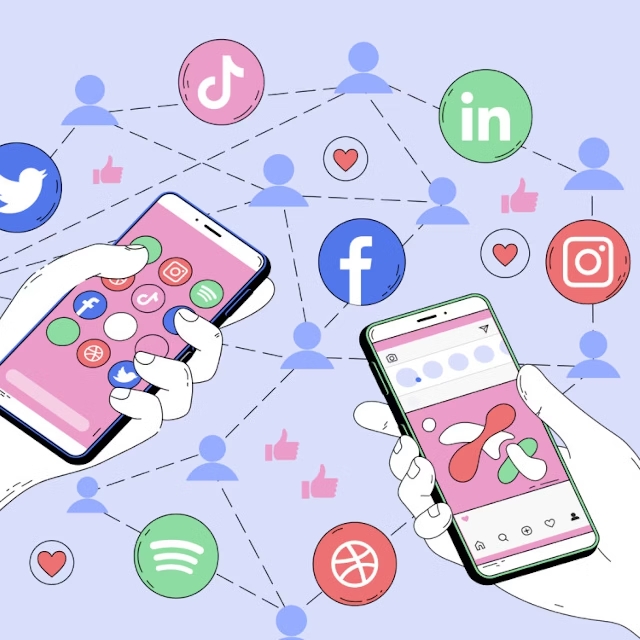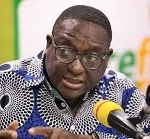Seidu Agongo writes: Is social media your enabler or destroyer?
 Social media icons
Social media icons
On May 15, 2023, when a boisterous crowd of Nigerians on and off social media were urging their own Hilda Baci on to set a new record as the longest non-stop cook in the world, Ghanaians were realising that one of their social media influencers, Mona Faiz Montrage, has been charged in the United States of America for allegedly using the same internet to dupe people.
As is to be expected, both issues became leading on social media platforms in both countries; topping discussions, feeds, and trends. These two accidental coincidences tell of the powerful nature of social media as a tool for good and for bad in the modern world.
Almost an intrinsic part of today’s man, social media platforms such as Facebook, WhatsApp, Twitter, Instagram, Tiktok, and YouTube hold a great potential for both good and evil, depending on who is using them and for what.
In leisure, they abridge time and space. They also allow instant, easy, affordable, and real-time multimedia connections and communication, thereby reducing the pain that distance brings. They are also a great source of learning, knowledge sharing, networking, and remote working among others.
Statistics
The World Population Review says there are more Snapchat accounts in Ghana (over 34 million) than the country’s total population (31 million). Even the perceived decent apps have caught the virus, too.
Also, data published in Meta’s advertising resources indicates that Facebook had 5.65 million users in Ghana in January 2023 (DataReportal).
By February 2023, the numbers published in Meta's advertising tools indicated that Instagram had 1.70 million users in Ghana in early 2023 (DataReportal).
For Twitter, some 1.15 million users are Ghanaians, according to the February 2023 data of DataReportal.
Cumulatively, Ghana was home to 6.60 million social media users in January 2023, equating to 19.5 percent of the total population.
The favourite social media platforms for Ghanaians, according to DataReportal, are WhatsApp (44.2%), Instagram (13.5%), Facebook (12.5%), Twitter (7.9%), TikTok (6.0%), Snapchat (4.1%), Telegram (3.9%), iMessage (1.1%), Facebook Messenger (0.8%) and Pinterest (0.8%).
Potential
This huge following from Ghana means that anything posted by an individual in Ghana spreads fast and wild. It also means the potential of global networking is enormous and those who know and value it can prioritise it through these platforms.
The easy-to-use nature of these platforms means that anybody who owns a smartphone and has access to the internet can use them. The farmer can use social media to form virtual cooperatives to share problems and find solutions as well as sell produce, universities can use them for remote lecturing and students can use them for virtual learning.
Business people and institutions can also use social media to enhance their brand visibility. Even individuals use social media for a billion other things, including crafting an image for personal branding purposes, selling business propositions, and advertising their professional skills, among others.
Almost anybody and everybody can find some good use of social media's boundless opportunities.
Bad influence
Sadly, however, in our part of the world, social media has resulted in considerable decay in morals, privacy invasion, sexual immorality, fakeness, fraud, deceit, and everything bad. As a result, many view it as the devil's tool of bad influence, especially on the youth. Although these vices are not new, social media magnifies them through its huge global following and labyrinthine networks.
Instead of harnessing the positives, our youth use them to compete for attention through likes, shares, or following. The irony is that not much of that attention is geared towards positivity to society or indigenous businesses. Indeed, social media has made life a competition of vanity. It has become the preferred stage for outing spousal foibles in a no-holds-barred manner.
Rather than leveraging these numbers for positive things, many a Ghanaian youth is wallowing in social media's vain allure and destroying themselves in the process. Their whole life is now a social media spectacle. It is the new addiction that is almost more destructive than the most potent cocktail of hard drugs.
But how long can this last, given the havoc it is already wrecking on our youth and the country as a whole? It is time the youth see the fakeness of social media and return to our cultural factory setting.
If we should be there, we should use it to advance our own good, build and nurture relationships and market our talents, country, and businesses to the world.
Alhaji Seidu Agongo is a philanthropist and businessman.
Source: classfmonline.com





